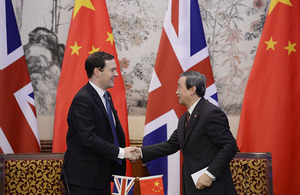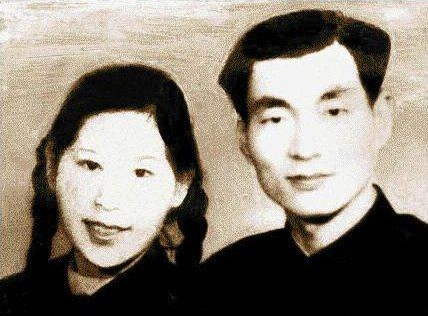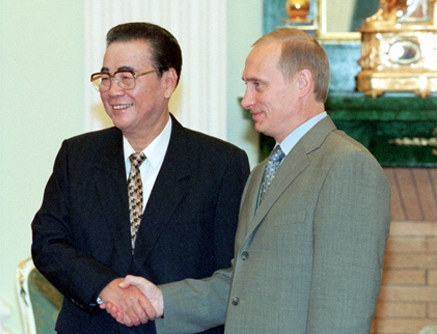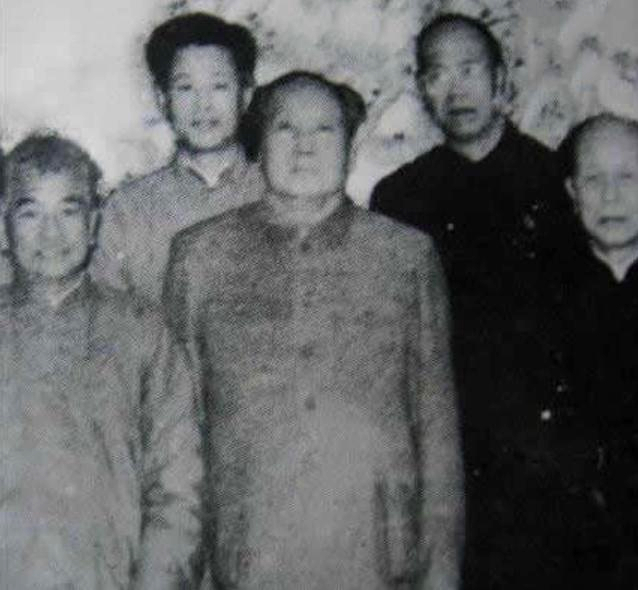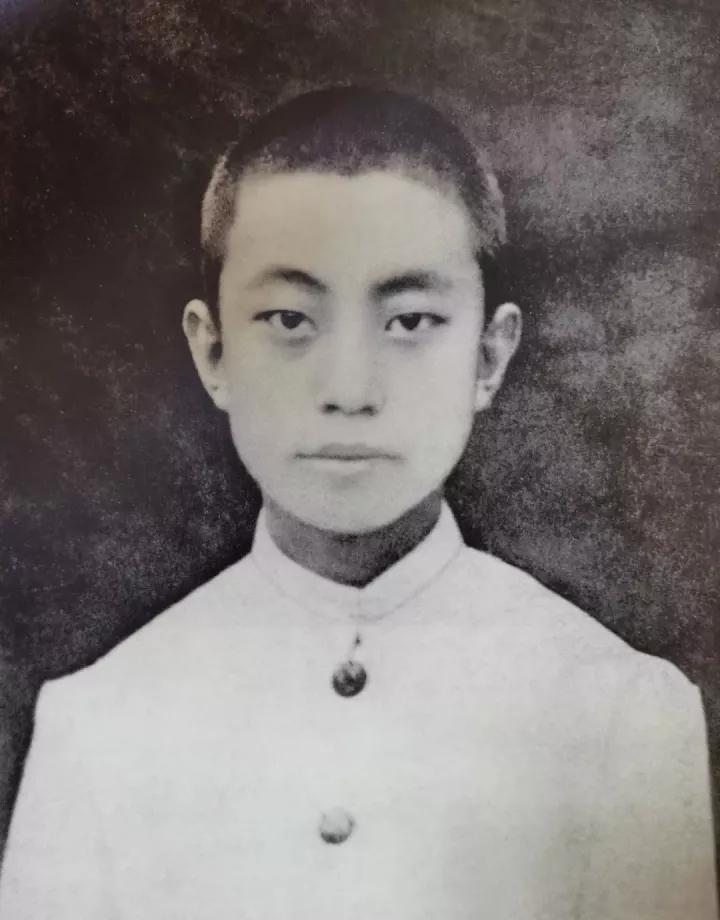|
State Planning Commission Of China
The National Development and Reform Commission of the People's Republic of China (NDRC), formerly State Planning Commission and State Development Planning Commission, is a macroeconomic management agency under the State Council, which has broad administrative and planning control over the economy of Mainland China. It has reputation of being the "mini-state council". The candidate for the chairperson of the NDRC is nominated by the Premier of the People's Republic of China and approved by the National People's Congress. Since February 2017 the commission has been headed by He Lifeng. Synopsis The NDRC's functions are to study and formulate policies for economic and social development, maintain the balance of economic development, and to guide restructuring of the economic system of Mainland China. The NDRC has twenty-six functional departments/bureaus/offices with an authorized staff size of 890 civil servants. Prior to 2018, it was also responsible for enforcing China's ... [...More Info...] [...Related Items...] OR: [Wikipedia] [Google] [Baidu] |
Emblem Of The People's Republic Of China
The National Emblem of the People's Republic of China contains in a red circle a representation of Tiananmen, Tiananmen Gate, the entrance gate to the Forbidden City, where Mao Zedong declared the foundation of the China, People's Republic of China (PRC) in 1949. Above this representation are the five stars found on the flag of China, national flag. The largest star represents the Chinese Communist Party (CCP), while the four smaller stars represent the four social classes as defined in Maoism. The emblem is described as being "composed of patterns of the national flag": ...The red color of the flag symbolizes revolution and the yellow color of the stars the golden brilliant rays radiating from the vast red land. The design of four smaller stars surrounding a bigger one signifies the unity of the Chinese people under the leadership of the Communist Party of China (CPC). —China Yearbook 2004 The outer border of the red circle shows sheaves of wheat and the inner sheaves o ... [...More Info...] [...Related Items...] OR: [Wikipedia] [Google] [Baidu] |
Central People's Government Of The People's Republic Of China (1949–54)
The State Council, constitutionally synonymous with the Central People's Government since 1954 (particularly in relation to local governments), is the chief administrative authority of the People's Republic of China. It is chaired by the premier and includes each cabinet-level executive department's executive chief. Currently, the council has 35 members: the premier, one executive vice premier, three other vice premiers, five state councilors (of whom three are also ministers and one is also the secretary-general), and 26 in charge of the Council's constituent departments. The State Council directly oversees provincial-level People's Governments, and in practice maintains membership with the top levels of the CCP. Aside from very few non-CCP ministers, members of the State Council are also members of the CCP's Central Committee. Organization The State Council meets every six months. Between meetings it is guided by a (Executive Meeting) that meets weekly. The standing c ... [...More Info...] [...Related Items...] OR: [Wikipedia] [Google] [Baidu] |
Ma Kai
Ma Kai (; pinyin: ''Mǎ Kǎi''; born June 1946 in Shanghai) was one of the four Vice Premiers of China (Fourth-ranked). He was formerly a State Councilor and Secretary General of the State Council of China. Biography Ma Kai was born in Jinshan, Shanghai in 1946. He received his Master's degree from Renmin University of China in 1982. His portfolio also includes putting forth Chinese policies with regard to global warming. He was a member of the 16th and the 17th Central Committee of the Chinese Communist Party, and then a member of the 18th. He was elected to 18th Politburo of the Chinese Communist Party in 2012. In 2003 he was given responsibility for the National Development and Reform Commission, an organisation which has broad administrative and planning control over the Economy of China The China, People's Republic of China has an upper middle income Developing country, developing Mixed economy, mixed socialist market economy that incorporates economic planning th ... [...More Info...] [...Related Items...] OR: [Wikipedia] [Google] [Baidu] |
Zhu Rongji
Zhu Rongji (; IPA: ; born 23 October 1928) is a retired Chinese politician who served as Premier of the People's Republic of China from 1998 to 2003 and CCP Politburo Standing Committee member from 1992 to 2002 along with the Chinese Communist Party's general secretary Jiang Zemin. In his capacity as First Vice-Premier and Premier, Zhu was regarded as the leading figure behind China's economic policy in the 1990s and early 2000s. He also served as Mayor of Shanghai from 1988 to 1991 and Communist Party secretary of Shanghai from 1989 to 1991. He served alongside CCP leader Jiang Zemin and had a testy relationship with Jiang. Zhu had a reputation as a tough but pragmatic administrator. During his office, China's economy saw double digit growth. Zhu was also much more popular than his predecessor Li Peng among the Chinese public. However, Zhu's opponents stipulate that his tough and pragmatic stance on policy was unrealistic and unnecessary, and many of his promises were left un ... [...More Info...] [...Related Items...] OR: [Wikipedia] [Google] [Baidu] |
Zeng Peiyan
Zeng Peiyan (; born December 1938) is a Chinese politician. He was a member of the Politburo of the Chinese Communist Party from 2002 to 2007 and was a Vice-premier from 2003 to 2008. Early life and career Zeng Peiyan was born in Shaoxing, Zhejiang Province. He graduated from Tsinghua University in 1962. Zeng joined the Chinese Communist Party in 1978. Post-political life Following his post as Vice Premier of the State Council, Zeng has been serving as Chairman of the China Center for International Economic Exchanges, a think tank with the mission of promoting international economic research and exchanges and providing consulting service. In 2009, he also became a member of the International Advisory Council of the sovereign wealth fund China Investment Corporation. 2013 Taiwan visit In end of February 2013, Zeng, in his capacity as the Chairman of the mainland-based China Center for International Economic Exchanges visited Taiwan for five days in which he delivered a speech ... [...More Info...] [...Related Items...] OR: [Wikipedia] [Google] [Baidu] |
Chen Jinhua
Chen Jinhua (July 1929 – 2 July 2016) was a Chinese politician. Chen joined the Chinese Communist Party in February 1949 and studied at Renmin University of China from 1953 to 1955 and from 1960 to 1962. From the 1950s through the 1970s, he served in positions of increasing responsibility in China's former Ministry of Textile Industry and Ministry of Light Industry. From 1977 to 1983, Chen served on the Standing Committee of the Shanghai Municipal People's Congress, as well as deputy secretary of the Shanghai CPC Committee. From 1983 to 1990, he served as the general manager and Party Secretary of state-owned oil company Sinopec. In 1990, Chen was named the chairman of the former State Commission on Economic Structure Reform, and from 1993 to 1998 he served as the chairman of the State Planning Commission of China, the precursor to the current National Development and Reform Commission. From 1998 to 2003, he served as a vice-chairman of the Chinese People's Political Co ... [...More Info...] [...Related Items...] OR: [Wikipedia] [Google] [Baidu] |
Zou Jiahua
Zou Jiahua (born October 1926) is a retired high-ranking politician of the People's Republic of China. He served as China's Vice Premier from 1991 to 1998, Vice-Chairman of the 9th National People's Congress from 1998 to 2003, and was a member of the Politburo of the Chinese Communist Party from 1992 to 1997. Early life and career In 1944, Zou Jiahua joined the New Fourth Army at the age of 18, and joined the Chinese Communist Party in 1945. From 1948 to 1955 Zou Jiahua studied first at the Harbin Institute of Technology, then later attended the Bauman Moscow State Technical University School of Mechanical Manufacturing, becoming proficient in Russian. His career, like many others in his generation centred on industry. Upon his return to China in 1955, Zou worked as an engineer in Shenyang, Liaoning Province, where he worked as the chief engineer then director of the Second Machine Tool Plant. Eventually in 1973, Zou became the Director of the First Ministry of Machine-Bui ... [...More Info...] [...Related Items...] OR: [Wikipedia] [Google] [Baidu] |
Li Peng
Li Peng (; 20 October 1928 – 22 July 2019) was a Chinese politician who served as the fourth Premier of the People's Republic of China from 1987 to 1998, and as the Chairman of the Standing Committee of the National People's Congress, China's top legislative body, from 1998 to 2003. For much of the 1990s Li was ranked second in the Chinese Communist Party (CCP) hierarchy behind then Party General Secretary Jiang Zemin. He retained his seat on the CCP Politburo Standing Committee until his retirement in 2002. Li was the son of an early Communist revolutionary, Li Shuoxun, who was executed by the Kuomintang. After meeting Zhou Enlai in Sichuan, Li was raised by Zhou and his wife, Deng Yingchao. Li trained to be an engineer in the USSR and worked at an important national power company after returning to China. He escaped the political turmoil of the 1950s, '60s and '70s due to his political connections and his employment in the company. After Deng Xiaoping became China's l ... [...More Info...] [...Related Items...] OR: [Wikipedia] [Google] [Baidu] |
Song Ping
Song Ping (; born 30 April 1917) is a Chinese Communist revolutionary and a retired high-ranking politician. He was a member of the Politburo Standing Committee of the Chinese Communist Party, which effectively rules China, and is considered the only living member of the Second Generation of Chinese Leadership. Biography He rose through the ranks of the party to become First Party Secretary of Gansu Province, and later Minister of Organization of CCP. Song was in charge of senior cadres' recommendation, candidacy and promotion. During his time as Party Chief of Gansu, Song Ping became mentor of two young protégés - Hu Jintao and Wen Jiabao – who were to become the General Secretary of the Chinese Communist Party and the Premier of the Chinese State Council, respectively. In 1987, Song left the Planning Commission to replace Wei Jianxing as head of the CCP Central Organization Department. Song announced a decision by the Chinese Communist Party to expel members ... [...More Info...] [...Related Items...] OR: [Wikipedia] [Google] [Baidu] |
Zhao Ziyang
Zhao Ziyang ( zh, 赵紫阳; pronounced , 17 October 1919 – 17 January 2005) was a Chinese politician. He was the third premier of the People's Republic of China from 1980 to 1987, vice chairman of the Chinese Communist Party (CCP) from 1981 to 1982, and CCP general secretary from 1987 to 1989. He was in charge of the political reforms in China from 1986, but lost power in connection with the reformative neoauthoritarianism current and his support of the 1989 Tiananmen Square protests. Zhao joined the Chinese Communist Party (CCP) in February 1938. During the Second Sino-Japanese War, he served as the chief officer of CCP Hua County Committee, Director of the Organization Department of the CCP Yubei prefecture Party Committee, Secretary of the CCP Hebei-Shandong-Henan Border Region Prefecture Party Committee and Political Commissar of the 4th Military Division of the Hebei-Shandong-Henan Military Region. During the Chinese Civil War of 1945-1949, Zhao served as the Deputy ... [...More Info...] [...Related Items...] OR: [Wikipedia] [Google] [Baidu] |
Yao Yilin
Yao Yilin (; September 6, 1917 – December 11, 1994) was a Vice Premier of the People's Republic of China from 1979 to 1988, and the country's First Vice Premier from 1988 to 1993. Early life and career He was born in Hong Kong in 1917, and spent his early years in Guichi, Anhui. Yao joined the Chinese Communist Party in 1935. During the December 9th Movement, Yao was the secretary of the Beijing city Party study group. During the Second Sino-Japanese War, he became the vice-director of the Finance Office of the Communist-controlled area. This began a long period of leadership in financial positions. In 1979, Yao became the Vice-Premier of the State Council. At the 13th National Congress of the Chinese Communist Party in 1987, Yao was elected to the Politburo Standing Committee of the Chinese Communist Party and later rose to the position of First Vice Premier of the People's Republic of China. Role in the 1989 Tiananmen Square Protests During the Tiananmen Square protests o ... [...More Info...] [...Related Items...] OR: [Wikipedia] [Google] [Baidu] |
Hua Guofeng
Hua Guofeng (; born Su Zhu; 16 February 1921 – 20 August 2008), alternatively spelled as Hua Kuo-feng, was a Chinese politician who served as Chairman of the Chinese Communist Party and Premier of the People's Republic of China. The designated successor of Mao Zedong, Hua held the top offices of the government, party, and the military after the deaths of Mao and Premier Zhou Enlai, but was gradually forced out of supreme power by a coalition of party leaders between December 1978 and June 1981, and subsequently retreated from the political limelight, though still remaining a member of the Central Committee until 2002. Born and raised in Jiaocheng, Shanxi, Hua was educated at the Jiaocheng County Commercial School and joined the Chinese Communist Party (CCP) in 1938, seeing action in both the Second Sino–Japanese War and the Chinese Civil War as a guerrilla fighter.Ye Yonglie, 邓小平改变中国——1978:中国命运大转折 (Deng Xiaoping Changed China-1978: Chi ... [...More Info...] [...Related Items...] OR: [Wikipedia] [Google] [Baidu] |
.jpg)
